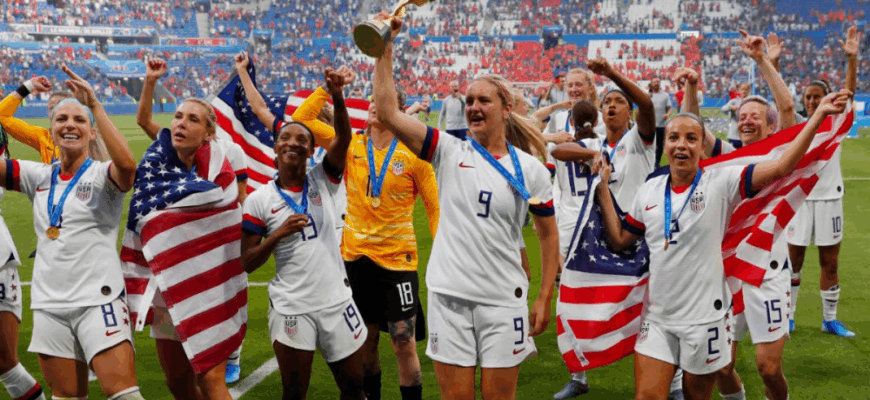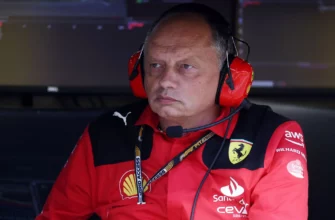The countdown to the 2027 FIFA Women`s World Cup in Brazil has officially begun, and with it, the strategic gears of national teams worldwide are grinding into motion. For the United States Women`s National Team (USWNT), four-time world champions and recent Olympic gold medalists, the preparation is not just about refining tactics; it`s about navigating an increasingly competitive global landscape in women`s football.
Under the stewardship of head coach Emma Hayes, the USWNT is undergoing a calculated evolution. This period, marked by the integration of fresh talent and the exploration of new tactical blueprints, is designed to ensure the team is primed to reclaim the World Cup title—a feat not achieved since 2019. Their return to the top of the FIFA rankings underscores their continued elite status, yet the era of experimentation highlights a pragmatic understanding: the game has changed, and so must they. Impressive performances from new faces suggest a robust pipeline of talent, promising a compelling roster two years hence.
The Rising Tide of Global Competition
The 2023 World Cup and the subsequent 2025 Women`s Euro served as unequivocal demonstrations of women`s football`s accelerated growth. The days when a handful of nations dominated the upper echelons are fading; a wider array of teams now possess the quality and strategic acumen to genuinely contend for the sport`s most coveted prize. While the USWNT undeniably remains in an exclusive tier, they are far from being unchallenged. The recent Women`s Euro final, a testament to this global shift, highlighted just how fierce the competition has become.
Key Contenders on the Horizon
As Brazil prepares to host the next global spectacle, several nations stand out as formidable challengers to the USWNT`s ambitions. Each brings a unique blend of tactical prowess, established talent, and a burning desire for glory.
England: The Lionesses` Roar
England, the reigning back-to-back European champions, are an undeniable force. Since Sarina Wiegman assumed command in 2021, the Lionesses have transformed into a consistent threat on the international stage. Wiegman`s remarkable record of guiding her teams to five of the last six major tournament finals speaks volumes about her strategic genius and ability to extract peak performance. With a squad boasting talents like Alessia Russo, Lauren James, and the emerging Michelle Agyemang, England combines technical skill with an indomitable will to win. Their Euro victory, characterized by both gritty resilience and impressive come-from-behind triumphs, showcased a maturity that makes them prime candidates for their inaugural World Cup title in 2027.
Spain: The Reigning Champions` Resolve
As current World Cup holders, Spain occupies a peerless position among the elite. While their recent defeat in the Women`s Euro final might sting, it barely diminishes their standing as one of the world`s premier teams. La Roja`s hallmark possession-oriented style is not only captivating to watch but also devastatingly effective, allowing them to dictate play and dismantle defenses. The Euro experience, particularly insights gleaned from facing robust defensive setups, will undoubtedly serve as valuable lessons. With their foundational strength and a clear identity, Spain possesses all the tools to refine their approach and could very realistically arrive in Brazil as favorites, intent on defending their crown.
Germany: A Quest for Redemption
Two-time World Cup winners Germany are poised for a powerful resurgence. Their unexpected group stage exit from the 2023 edition has undoubtedly fueled a desire for redemption, a narrative bolstered by strong recent performances. A bronze medal in Paris last year and an impressive run to the Euro semifinals this summer—despite grappling with a significant injury crisis and key suspensions—underscore their enduring competitiveness. This resilience signals that when operating at full strength, Germany remains a potent force capable of reclaiming a title they last won in 2007. Their path to Brazil will be driven by a fierce determination to reassert their historical dominance.
Brazil: The Home Advantage and a New Era
Hosting the tournament provides an undeniable boost, but Brazil`s potential extends far beyond mere home-field advantage. Under head coach Arthur Elias, the team is embracing a new generation of talent, a transition that has already yielded an Olympic medal. While their primary preparation will involve strategic friendlies, early results, such as a 2-1 victory over the USWNT in April, hint at their growing capabilities. Should they build on these notable results and potentially secure a fifth successive Copa America Femenina title this summer, Brazil will transform into a compelling dark horse—a team perfectly positioned to leverage fervent home support and an invigorated squad for a deep run in 2027.
Conclusion: A World Cup for the Ages
The 2027 Women`s World Cup promises to be a landmark event, not only for its host nation but for the global evolution of women`s football. The USWNT, with its blend of established champions and dynamic new recruits, is preparing for what will likely be their most challenging campaign yet. As nations like England, Spain, Germany, and Brazil sharpen their competitive edges, the stage is being set for a tournament of unprecedented depth, tactical innovation, and thrilling contests. The global race is on, and the journey to Brazil will undoubtedly be captivating.








